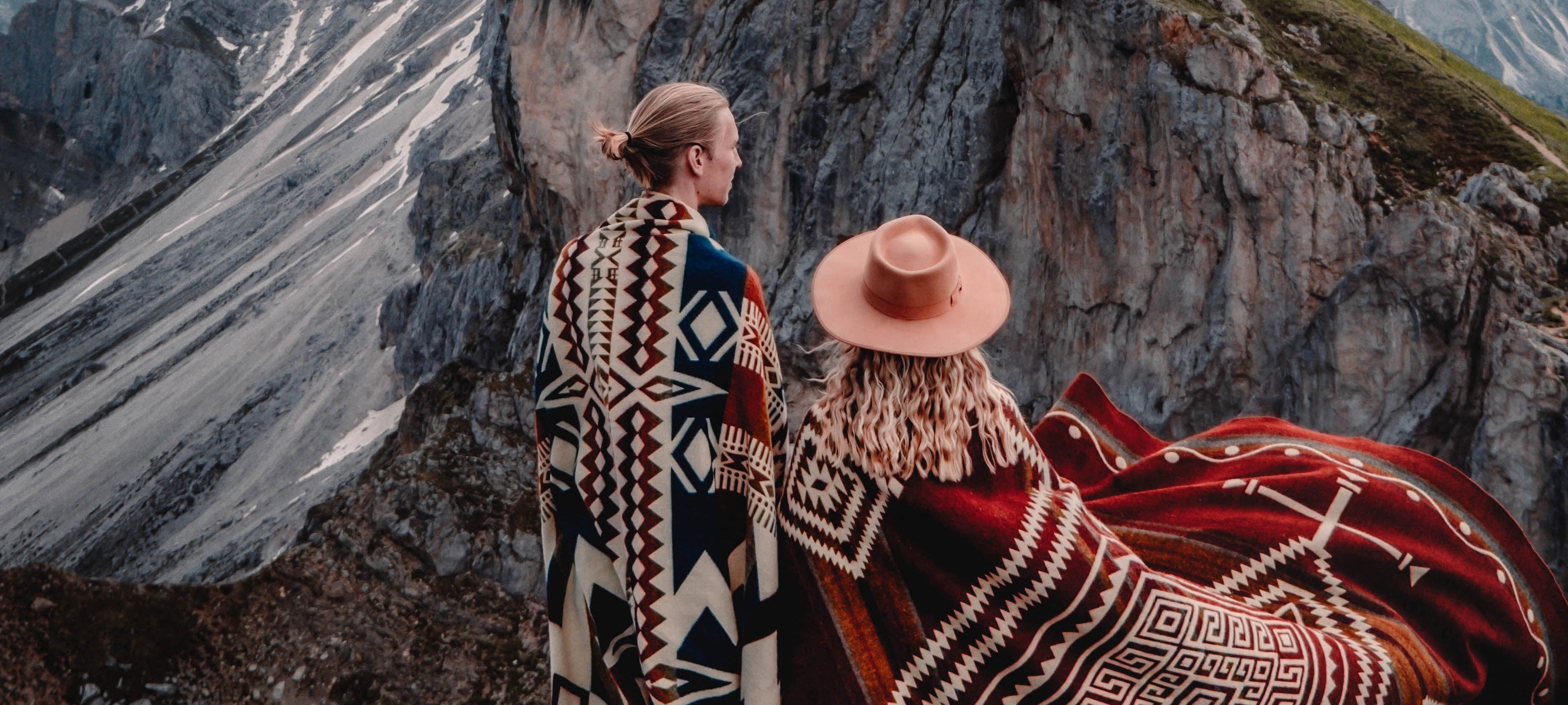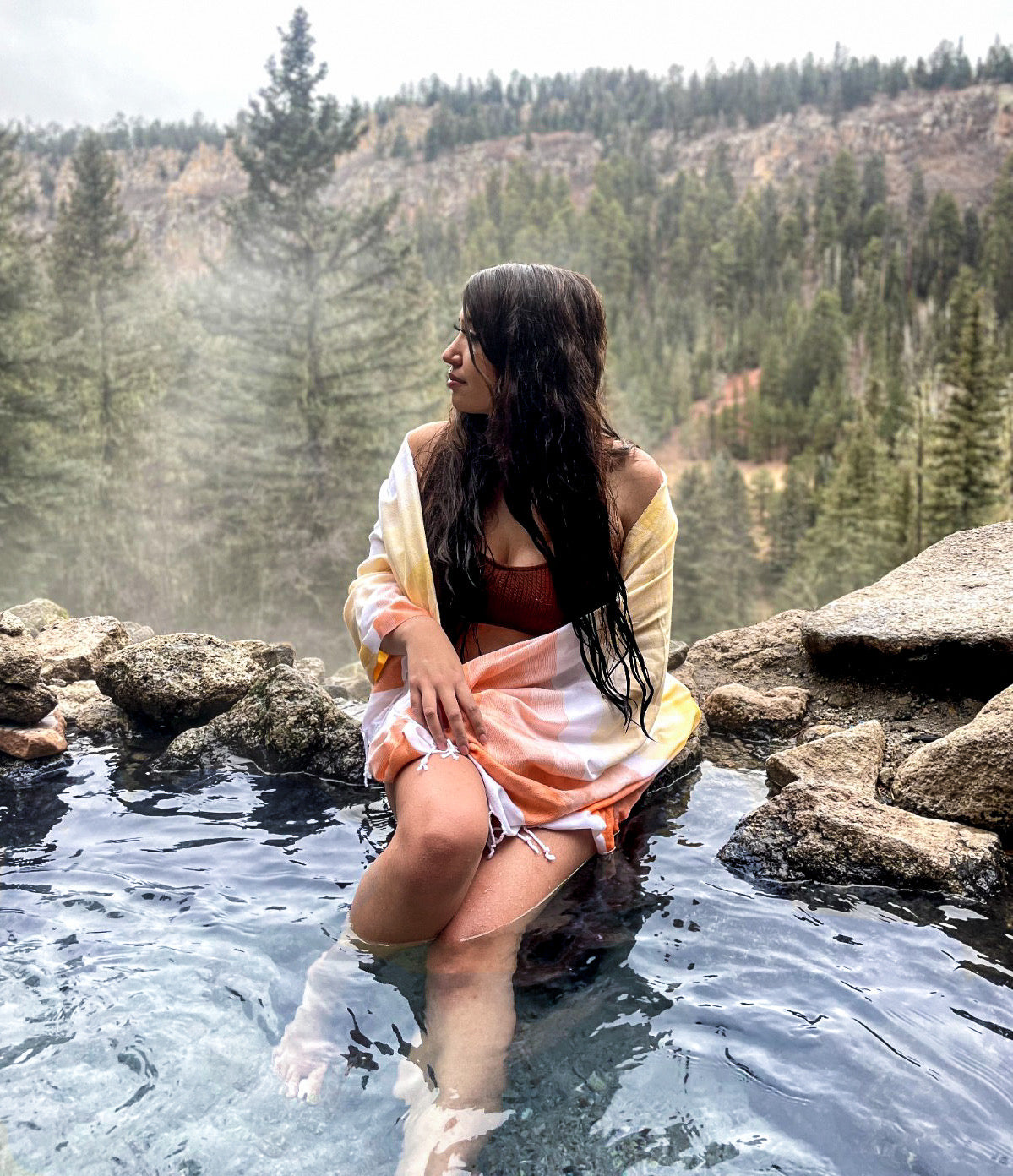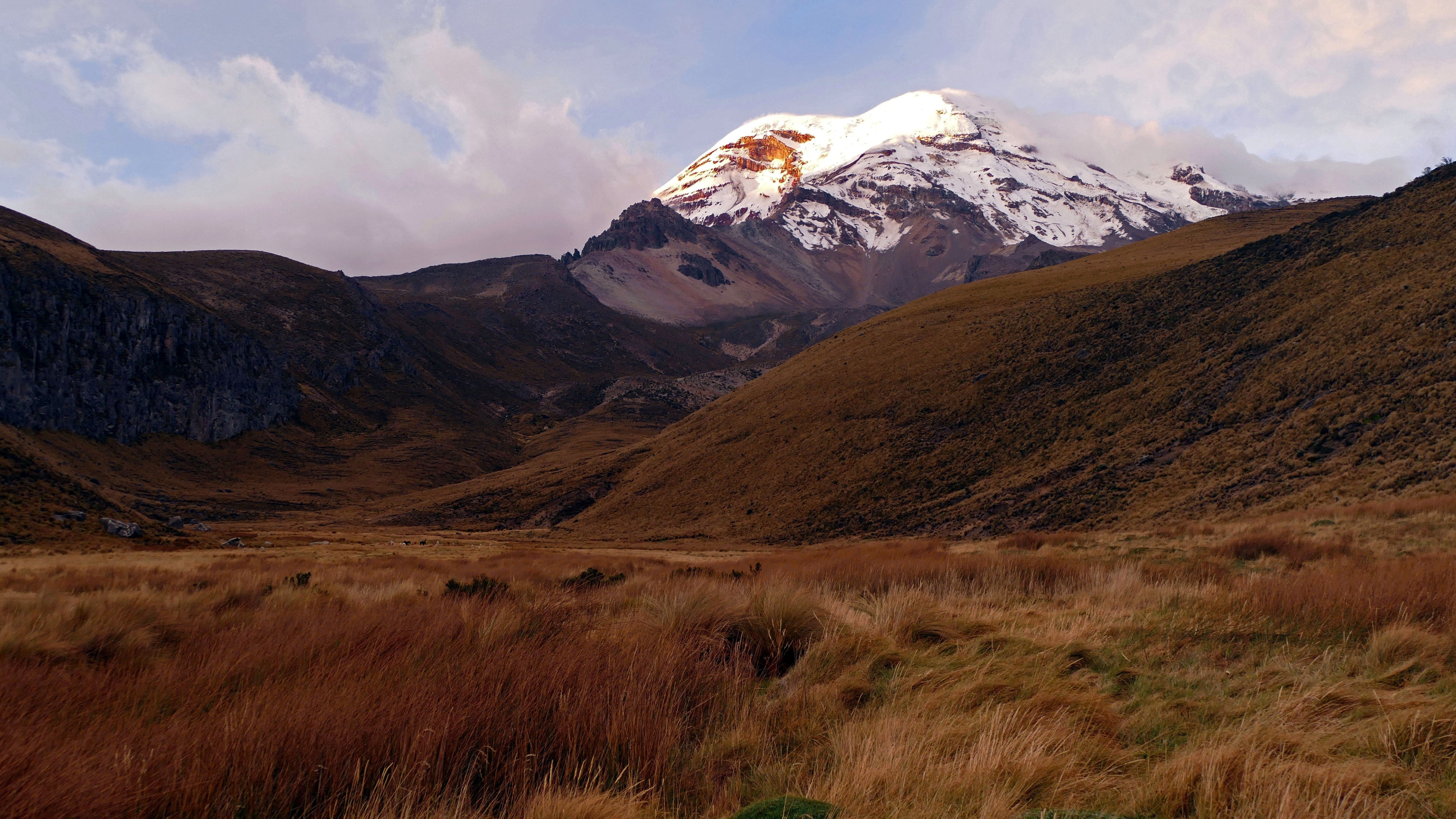Their history
Alpacas originate from South America and their name is a Spanish word that was originally derived from the Aymara name “Allpacu”, or Quechuan names “Pacos” or “Pacoshas.” Alpacas have a rich history that dates back to approximately 2500 B.C. when the use of alpaca fiber in textiles began. There are even paintings made on rocks that reference the interaction between the alpacas and ancient Peruvians more than 8000 years ago. When the use of alpaca fibers in textiles began, it became increasingly important in ancient Peruvian cultures. Alpacas are an extremely important element of cultural identity and an important pillar for livelihood for more than one million small alpaca farmers in the central Andes of South America.

Alpaca is
Sustainable
Our partners in Peru work to sustain both the alpaca population and the local shepherds of Peru through special shearing and genetic selection techniques. These special techniques help ensure the alpaca conservation, providing better income and education to the shepherds who raise and care for them, and with our partnership, we provide support to sustain the development of alpaca raising.
Eco Friendly
This all-natural, renewable, biodegradable fiber comes in 22 natural colors and has a low grease content ( 2.8 - 3.9%) compared to other animal fibers. Because of this, they require significantly less amount of energy and chemicals to treat the water used for its washing process.

*Hypoallergenic
Alpaca fiber is well known for being hypoallergenic and doesn’t contain Lanolin, an oil found in wool products generated by sheep that can aggravate the skin, meaning it doesn’t scratch or irritate the skin as wool products do.
Excellent Insulator
Alpaca fiber is an excellent insulator for both heat and cold. This means that you can wear or cover yourself with alpaca fiber when in both hot and cold temperatures.
*The following information refers to 100% Alpaca and Baby Alpaca products only. Make sure to check the product description and labels as this information does not qualify for throws and products that contain wool.
Alpaca Characteristics

BABY ALPACA FIBER ISN'T WHAT YOU THINK IT IS...

The term "Baby Alpaca" is not a reference to the fur of the cria, baby alpaca, as one might assume, but rather it refers to the grading quality of the fineness of the adult fiber. Baby alpaca fiber is the softest part of an adult Alpaca, not the age of the animal, and is sheared from the neck and chest area of an alpaca and on the back. The fleece in this area is one of the finest and softest because the fiber diameter on the back is lower than on other parts of the body, as well as there is minimal overall friction on the back, keeping the fiber nearly untouched. These fine parts of the fiber are carefully sorted and used to make our 100% Baby Alpaca throws. The Alpaca is never harmed in the shearing process and the fleece begins to grow back immediately. Baby alpaca is the second finest fiber category with its fiber diameters of 19-20 microns, classing it as baby alpaca in its finest fiber ranking.


How to Recognize Alpaca Products
Alpaca fiber is luxurious and a high-priced fiber. Below are some tips that will help you identify authentic alpaca products.
- Real alpaca fiber feels cool to the touch, whereas acrylic is warmer.
- 100% alpaca fiber pills less than other wool and synthetic fibers thanks to its special fiber. Its texture, length, and strength limit pilling. (LEARN MORE)
- Since alpaca fiber is known for not absorbing smells, it should have a neutral scent.
- 100% alpaca fiber items should have a higher price than blends and synthetic.
- Alpaca fiber has some awesome qualities like moisture-wicking and low flammability. 100% alpaca fiber should wick away water and should not catch fire immediately.
- 100% alpaca products usually exhibit their natural color or are only dyed with natural dyes.

Our Partners
Behind every alpaca throw, there is a story, a family, a lesson, a positive influence our partners in Peru strive to bring impact.
From developing the most advanced genetic improvement program for the alpaca to providing benefits, particularly for the rural families who make a living from this resource. Their main objective is influencing a different lifestyle in which respect comes first. Being consistent with their beliefs and actions, they provide a guaranteed safe work environment, gender equality, employment for those with special needs, and a wide range of benefits while also seeking sustainability and causing minimal environmental impact. Thinking of others and never taking for granted what they have. It is about inspiring others to live in the best possible way.
Certificantions
Our Partners are Certified
Our partners in Peru have obtained several certifications for ethical and sustainable business practices such as the Faire Trade, Global Reporting Initiative, and Gold Certificate of Compliance given by WRAP in Peru (shown below). They are dedicated to ethical and responsible business standards.


Discover MORE
Continue discovering how we strive to become more sustainable and Eco-Friendly as a brand and with our partnerships.
Learn MoreALPACA BREEDS
There are two types of alpacas that make up alpaca fiber products, the Huacaya and Suri. Their different appearances and adaptive traits result in a unique experience with each fiber that creates products adaptable in extreme climates, in both cold and warm weather.

Alpaca Suri
Slim and delicate, the Suri has long shaggy hair that grows parallel to the body with curls all around them, like fringes, often reaching nearly to the ground. They, however, have a silkier and shinier appearance to them. Their young are weak and at birth are affected by the low temperatures and by changes in climate and food.

Alpaca Huacaya
As of today, this breed is made up of almost 90% of Huacaya. The Huacaya has a medium-length fleece with a fluffy appearance but is strong and robust. They are resistant to cold and disease and do not mid tough pastures. Its fibers grow perpendicularly and have density, softness, luster, and curls with a sponge-like appearance.









